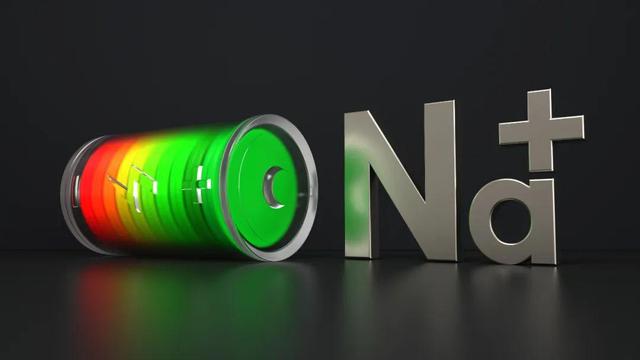 |
Welcome To Evlithium Best Store For Lithium Iron Phosphate (LiFePO4) Battery |
 |

Sodium-ion batteries (Na-ion batteries) have emerged as promising alternatives to lithium-ion batteries due to their numerous benefits. These innovative energy storage devices offer a range of advantages, from cost-effectiveness to environmental sustainability. In this article, we will explore the benefits of sodium-ion batteries and their potential impact on various industries.
Sodium-ion batteries are a type of rechargeable battery that uses sodium ions as the charge carriers. Similar in design to lithium-ion batteries, they consist of an anode, a cathode, and an electrolyte. However, sodium-ion batteries utilize sodium ions instead of lithium ions, making them a more sustainable and affordable option.
Sodium-ion batteries typically feature a graphite anode, a cathode material such as sodium cobalt oxide or sodium iron phosphate, and a liquid electrolyte containing sodium salts. During charging and discharging, sodium ions move between the anode and cathode through the electrolyte, facilitating the flow of electric current.
The operation of sodium-ion batteries involves reversible electrochemical reactions. When the battery is being charged, sodium ions are extracted from the cathode and stored within the anode. During discharge, the stored sodium ions migrate back to the cathode, releasing energy in the process.
One of the key advantages of sodium-ion batteries is their cost-effectiveness. Sodium is more abundant and less expensive than lithium, making it a more affordable option for large-scale energy storage applications.
Unlike lithium, which is primarily mined in select regions, sodium is widely available across the globe. This abundance of sodium resources ensures a stable supply chain for sodium-ion batteries, reducing concerns related to resource depletion and geopolitical issues.
Sodium-ion batteries are known for their enhanced safety and stability compared to lithium-ion batteries. Sodium is less reactive than lithium, reducing the risk of thermal runaway and fire hazards. This makes sodium-ion batteries particularly suitable for applications where safety is a priority.
Another benefit of sodium-ion batteries is their reduced environmental impact. The production and disposal of lithium-ion batteries can have negative environmental consequences due to the extraction and processing of lithium. In contrast, sodium-ion batteries offer a more sustainable alternative, with fewer environmental concerns.
Sodium-ion batteries have a wide range of applications across various industries, including:
Sodium-ion batteries are well-suited for grid energy storage systems, where they can store excess renewable energy generated from sources such as solar and wind power. Their cost-effectiveness and long cycle life make them ideal for balancing supply and demand on the grid.
The automotive industry is exploring the use of sodium-ion batteries in electric vehicles (EVs) as a potential alternative to lithium-ion batteries. Sodium-ion batteries offer comparable performance to lithium-ion batteries at a lower cost, making them an attractive option for EV manufacturers.
Sodium-ion batteries can also be used in portable electronics such as smartphones, tablets, and laptops. Their safety, stability, and cost-effectiveness make them a viable choice for consumer electronics companies seeking sustainable battery solutions.
Despite their numerous benefits, sodium-ion batteries face certain challenges and limitations that need to be addressed:
Sodium-ion batteries typically have lower energy density compared to lithium-ion batteries, meaning they can store less energy per unit volume or weight. Improving the energy density of sodium-ion batteries is a key area of research and development.
The cycle life of sodium-ion batteries, or the number of charge-discharge cycles they can undergo before degradation, is another area of concern. Extending the cycle life of sodium-ion batteries will be essential for maximizing their long-term performance and reliability.
Sodium-ion batteries may experience reduced performance at extreme temperatures, particularly in cold environments. Enhancing their performance under a wide range of operating conditions will be critical for expanding their practical applications.
Despite these challenges, ongoing research and development efforts are focused on overcoming the limitations of sodium-ion batteries. Innovations in electrode materials, electrolytes, and battery designs hold promise for improving the performance and scalability of sodium-ion battery technology.
In conclusion, sodium-ion batteries offer a host of benefits that make them an attractive alternative to lithium-ion batteries. From cost-effectiveness to environmental sustainability, sodium-ion batteries have the potential to revolutionize energy storage across various industries. While challenges remain, continued advancements in research and development are paving the way for a brighter future powered by sodium-ion battery technology.
Are sodium-ion batteries safer than lithium-ion batteries?
What are the main challenges facing sodium-ion battery technology?
Can sodium-ion batteries be used in electric vehicles?
Are sodium resources sufficient to support widespread adoption of sodium-ion batteries?
How do sodium-ion batteries compare to lithium-ion batteries in terms of environmental impact?
Edit by editor
Last Update:2024-04-15 17:58:55
All Rights reserved © 2026 Evlithium Limited